A Quick Explainer
by Jess Erdman, Content Marketing LeadSeptember 2023

Retailers lack the resources to build sophisticated smart product filters from scratch, leaving shoppers with hard-to-understand and difficult-to-navigate filters.
Research shows that shoppers are more likely to convert if they use filters, highlighting the importance of making them simple and effective.
However, implementing a simple filter is easier said than done–in the current landscape of traditional filters, retailers have no choice but to manually build complex filters that are difficult to scale, and filled with confusing fashion jargon.
What if there was a better way?
In this article, we’ll explore an alternative to traditional filters: smart product filter & search.
But first, let’s make sure that we’re on the same page about what a filter is, and why traditional product filters are leaving retailers wanting more.
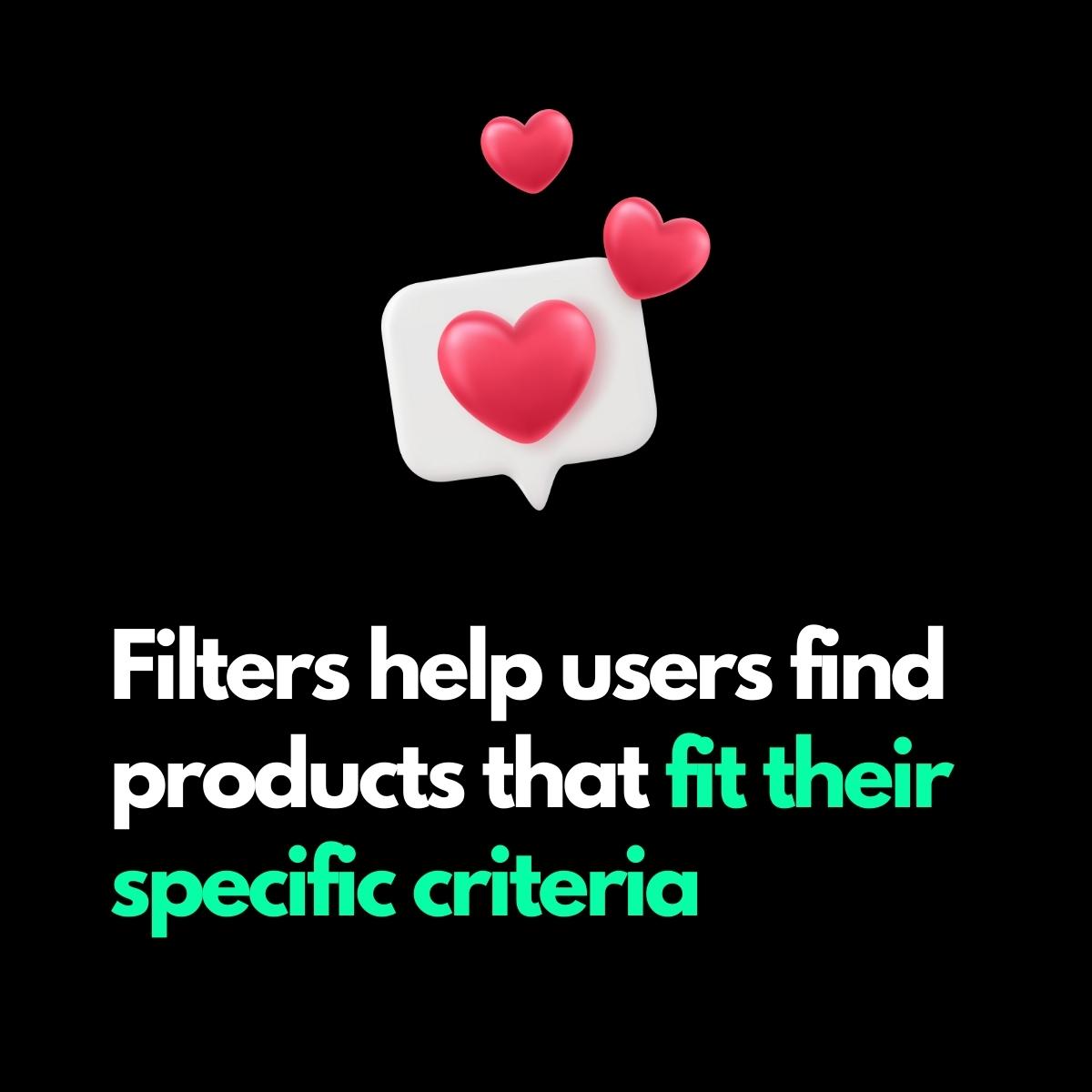
A product filter, often used in e-commerce and online shopping websites, is a tool or feature that allows users to refine and narrow down their search results when browsing for products. It helps users find products that match their specific criteria and preferences.
Product filters are typically found on category and search result pages. Shoppers can apply filters to refine products by attributes like price, brand, color, size, design, style
Filtering helps improve the shopping experience by letting consumers zoom in on products they want and eliminate ones that are irrelevant. This saves them time and effort compared to sifting through all search results.
However, there’s a big difference between traditional and smart product filter & search.
Traditional text filters used on eCommerce websites have limitations for both shoppers and retailers. Text filters rely solely on words and lack visual cues, which can confuse shoppers who don't understand fashion jargon.
For retailers, traditional text filters require manual configuration.
Specific downsides of traditional text filters include:
-Text indexing, without visual filtering or multiple feature options, limits the specificity of searches. Shoppers have a hard time finding exactly what they want.
-Lack of key tagging data: Traditional product filtering relies on information in the product description, but key factors that matter to shoppers - like silhouette, vibe, and pattern - are often not included there. As a result, shoppers cannot easily filter when using traditional filters that index only the product description.
-Text filters offer limited options related to fashion: for example: vibe, occasion, or form-fitted silhouettes.
-Without automated attribute extraction, retailers must manually add product attributes one-by-one, wasting valuable time.

-Traditional text filters are not customizable, so they aren’t optimized for specific retailer needs.
-Key filter attributes cannot be automatically extracted from products, increasing retailer workload.
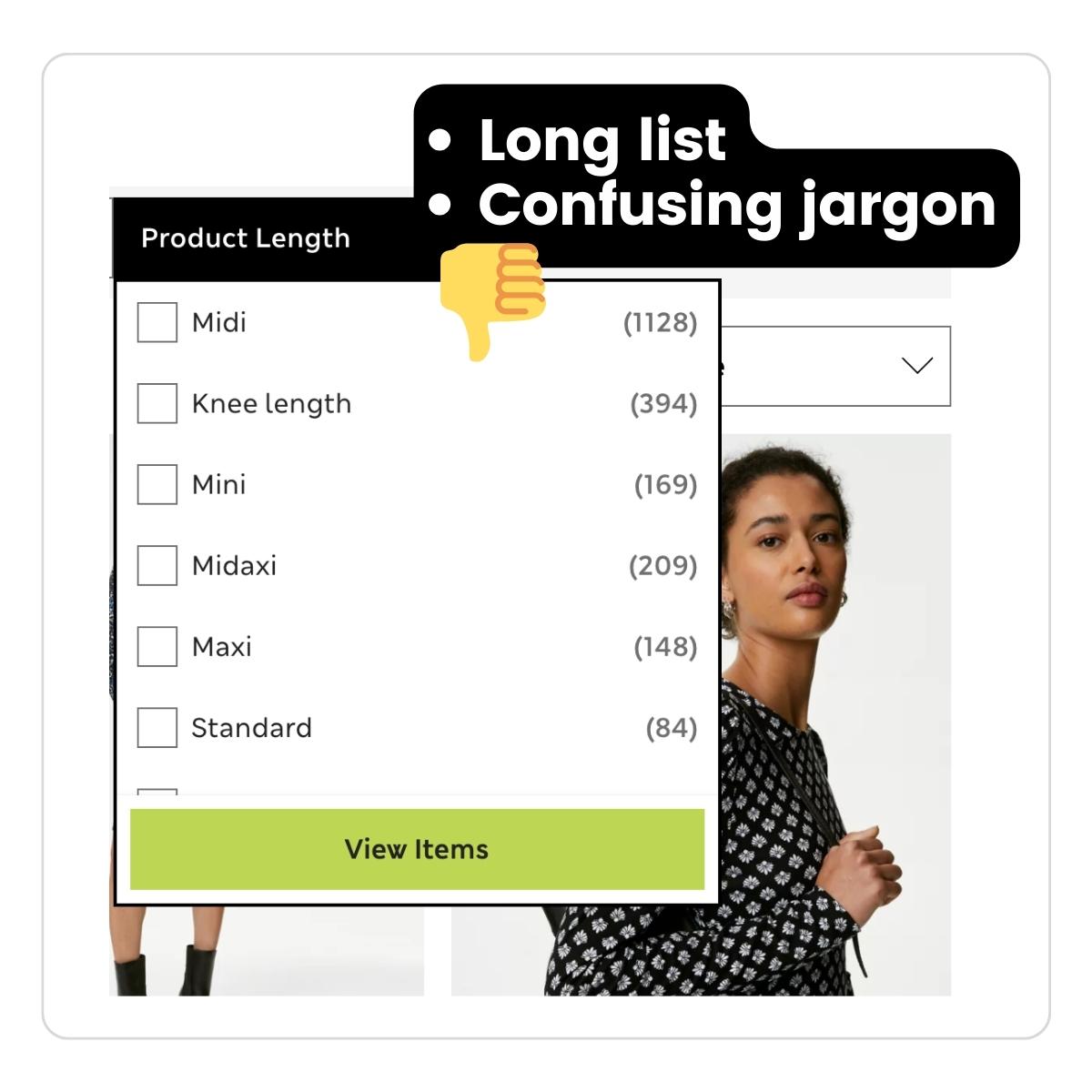
YesPlz smart product filter & search are reimagining the future of filters for both retailers and shoppers.
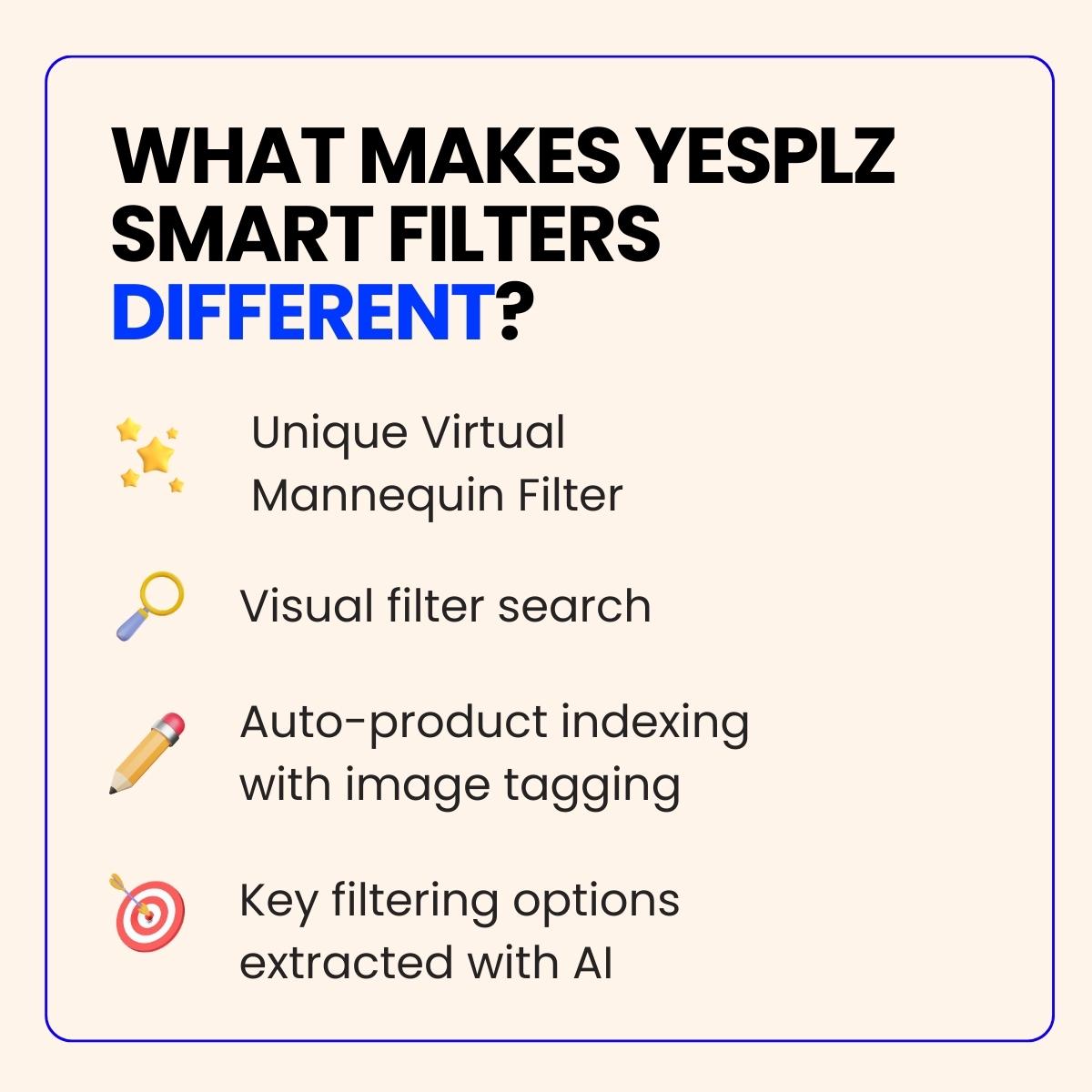
YesPlz smart product filters include engaging, visual product filters built on fashion-trained AI, that are ready for any retailer to plug in and use.
YesPlz smart product filters & search include:
-A unique, visual-first Virtual Mannequin Filter to make search more intuitive and delightful
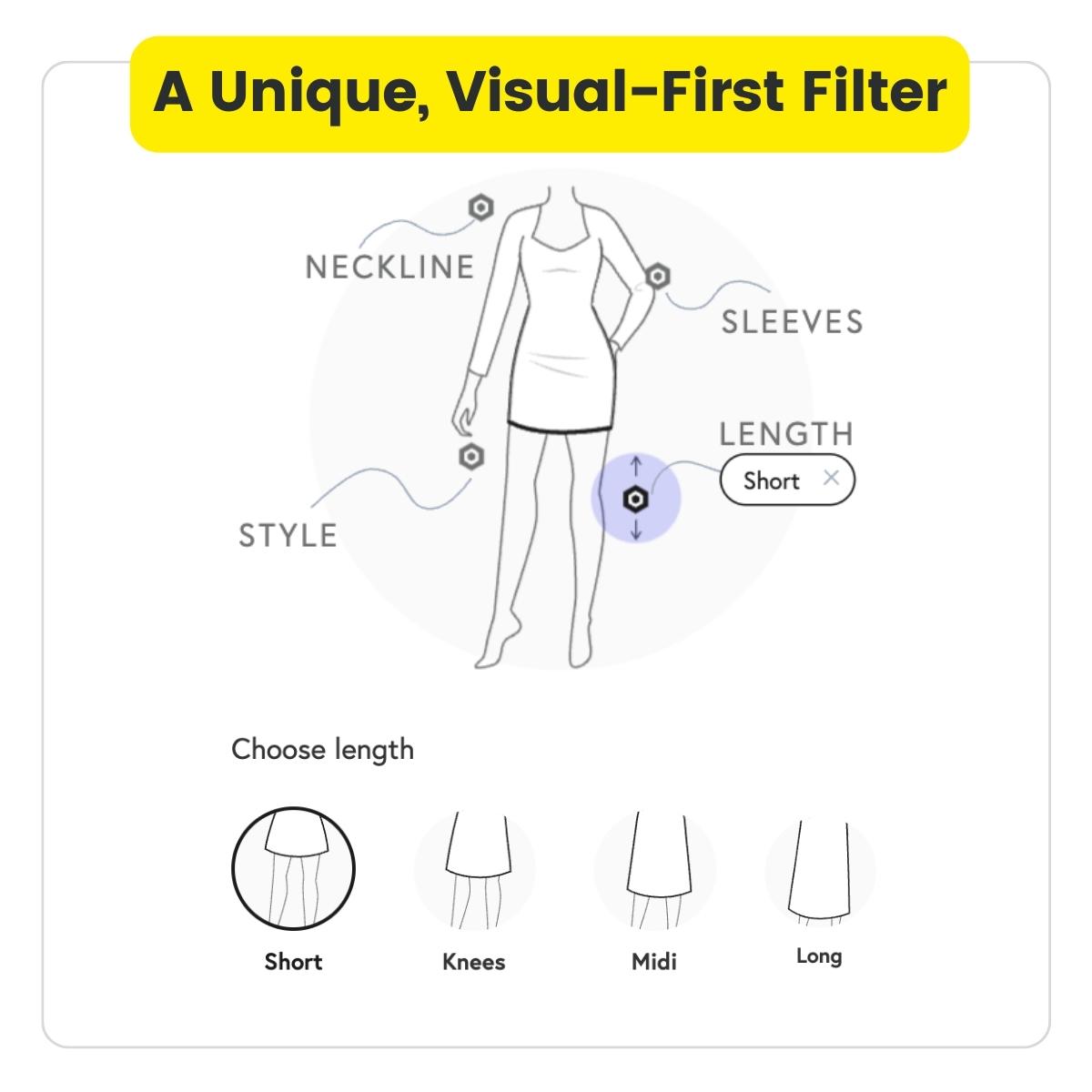
-Key filtering options that are extracted with our machine learning model. For example, occasion, silhouette, vibe, and design filters that matter to shoppers are all easily extracted with AI
-Customizable filters that allow retailers to change the design
-Auto-product indexing with image tagging for retailers
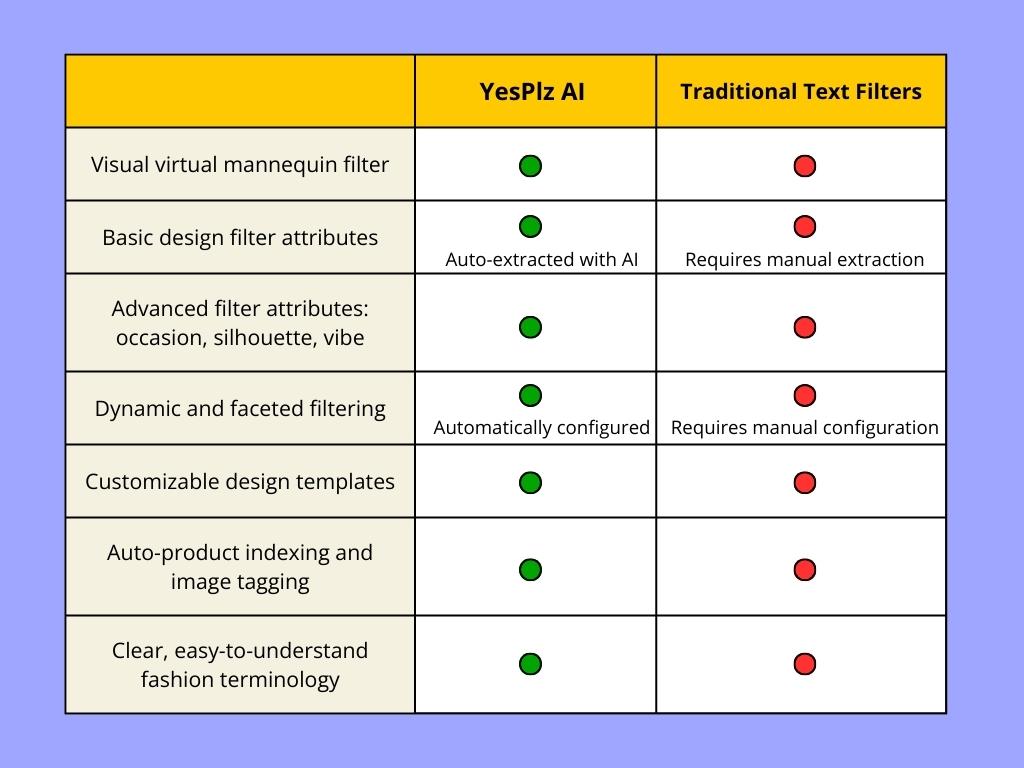
Here are the 4 reasons to choose smart product filters over traditional filter options:
1. Simple Integration & Plug-In for Retailers
For retailers, smart product filters like YesPlz AI are a quick and easy way to give shoppers more options while still maintaining control over the filtering process. Integrating YesPlz smart product filters is a simple process that requires no extra time spent manually uploading product attributes.
YesPlz AI takes care of the entire process, from AI tagging a retailer product catalog, indexing, and already has a fashion-trained, complex algorithm that’s ready-to-use.
2. No need for shoppers to understand complicated fashion jargon
One of the best practices for filtering is to make sure that they’re without complicated fashion jargon. Using smart product filter & search is a way to make sure that filter terminology stays consistent and accurate.
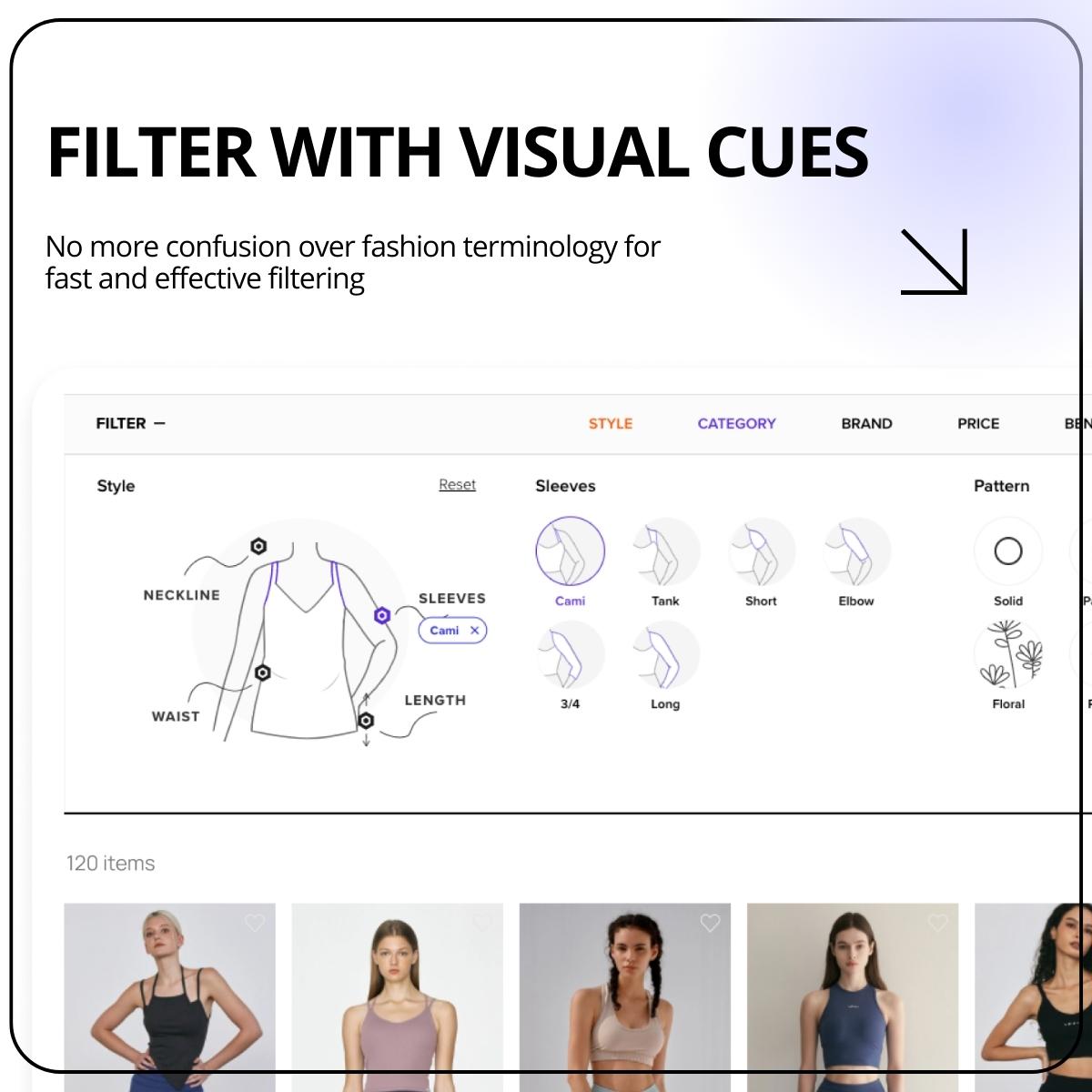
3. A one-of-a-kind visual search experience
The YesPlz Virtual Mannequin Filter delights shoppers with a higher quality navigation and discovery experience, as they can easily move through filter attributes, building complex searches with multiple product attribuets and details–all intuitively.
4. Customizable for retailers
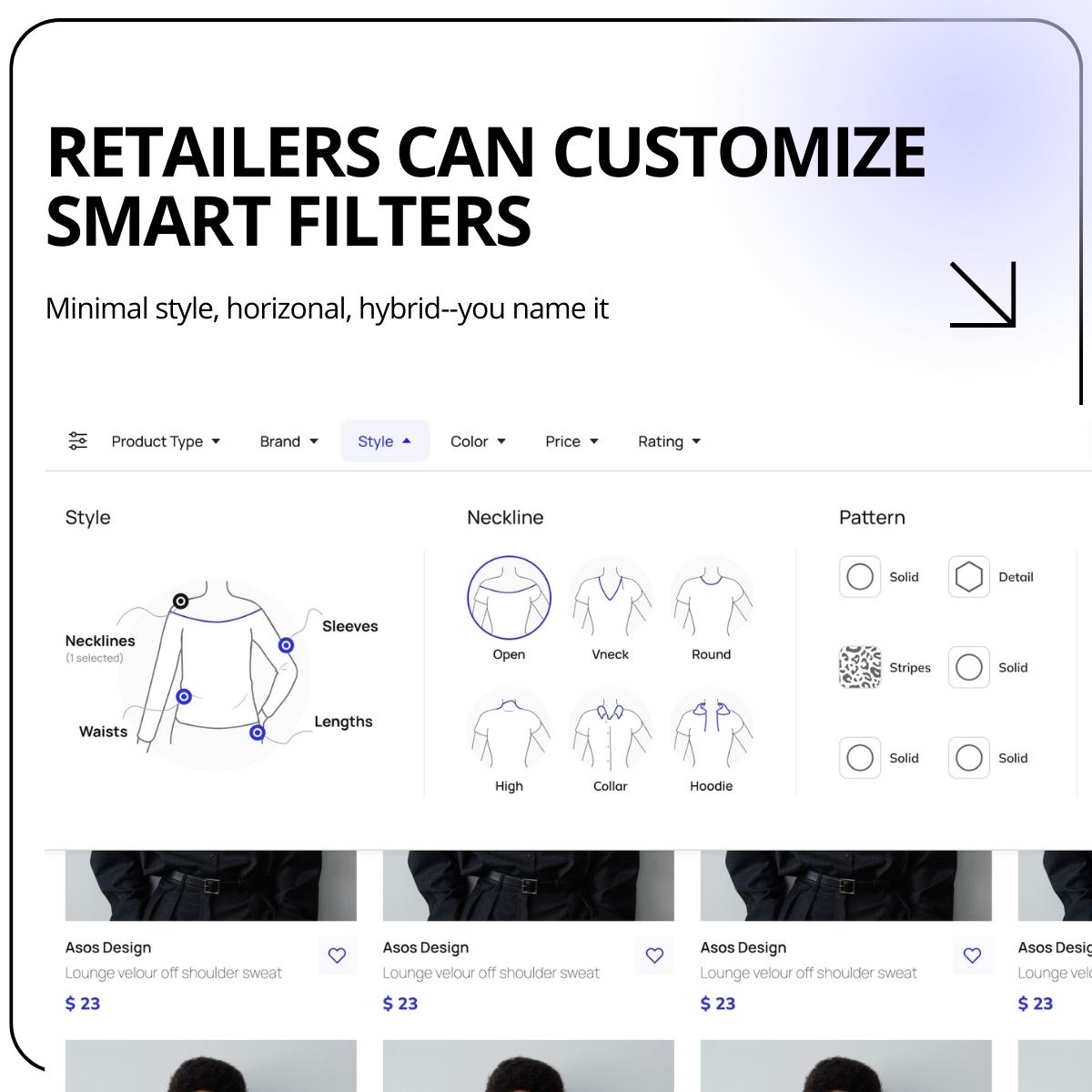
Retailers can control product filters including: creating multiple feature options, editing the Virtual Mannequin Filter, and choosing from design templates that match their needs.
The Virtual Mannequin Filter from YesPlz AI has proven effective at increasing cart sizes by helping shoppers easily find more products matching their preferences.
For example, after integrating the Mannequin Filter, leading Korean fashion retailer W Concept saw a 1.7x increase in average order value. The visually intuitive filtering empowers shoppers to quickly refine searches by attributes like silhouette, pattern, and neckline.
By giving shoppers more control over their experience, the Mannequin Filter makes it simple for them to discover and add additional relevant items to their cart. The visual cues transcend fashion jargon, boosting conversion rates.
And, all W Concept needed to do was plug into YesPlz’s AI tagging–YesPlz handled the rest. After tagging their rich product catalog for detailed attributes like jean type, W Concept was able to integrate not only the Virtual Mannequin Filter, but unique smart product filters like vibe and occasion filtering.
The Handsome shoppers loved the website, The Handsome team noticed a growing pattern: shoppers were only discovering the most popular items, leaving their large product catalog mostly untapped.
And, with limited engineering options, it wasn’t feasible for them to build internally.
The YesPlz AI solution?
First: auto-tag the product catalog
Then, use the product tagging as the foundation to create even more innovative discovery.
For example, YesPlz built The Discovery of Taste: a unique fashion quiz for shoppers to swipe and discover their personal style, while getting served curated recommendations based on their quiz results.
The Handsome also plugged into YesPlz’s smart product filters, accessing advanced filter options and integrating the Virtual Mannequin Filter for visually-enabled filtering.
For retailers, plugging into YesPlz smart product filter & search means control over the customization process, while integrating an automated, fashion-trained solution.
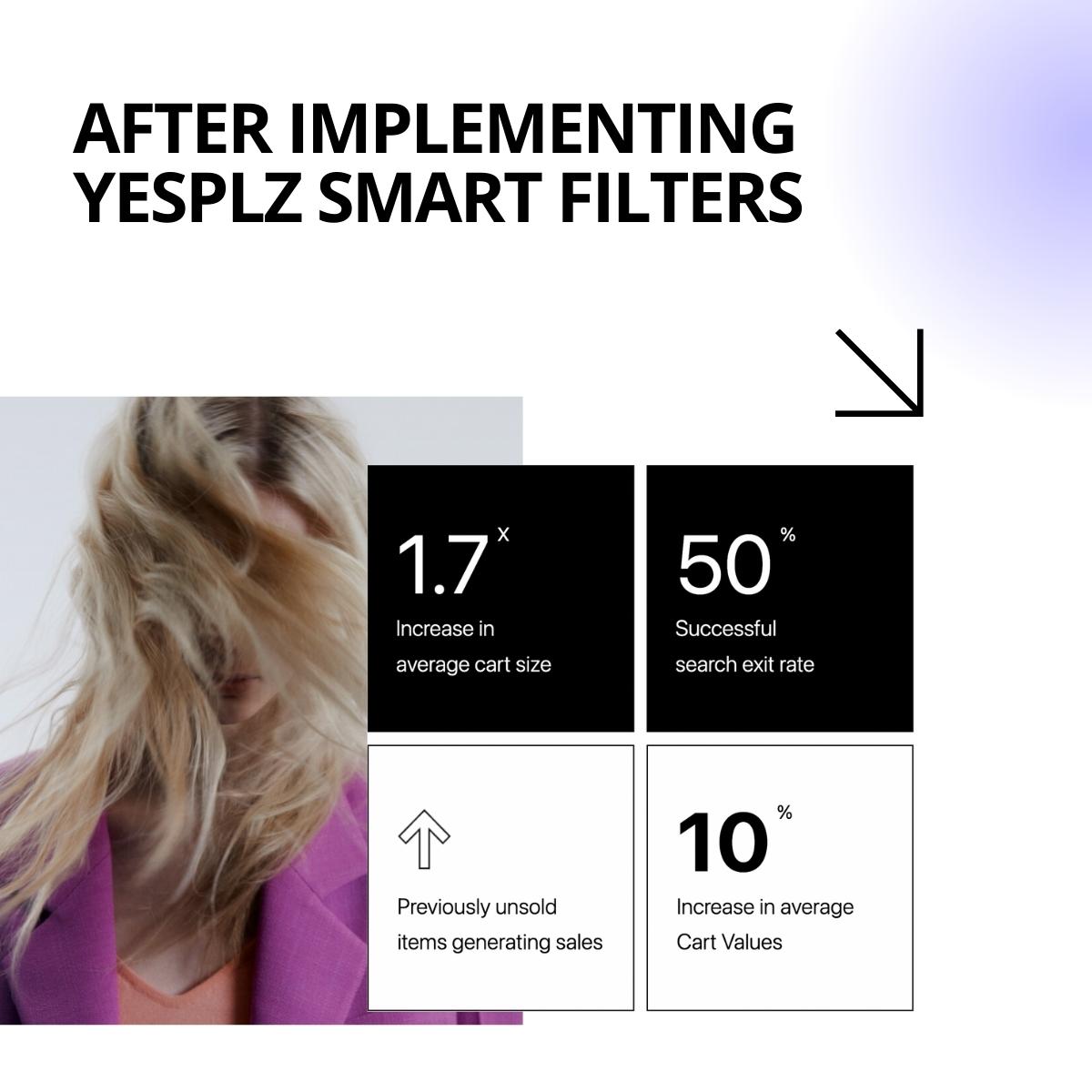
Written by Jess Erdman
Content Marketing Lead
I'm passionate about creating cool content. The best part? I get to learn new things about fashion tech and ecommerce everyday. Have an idea or opinion about this article? Reach out at jess@yesplz.ai

Fix search typos and synonyms with AI site search. Agentic AI manages keyword variations automatically. Zero maintenance, better conversions.
by YesPlz.AI
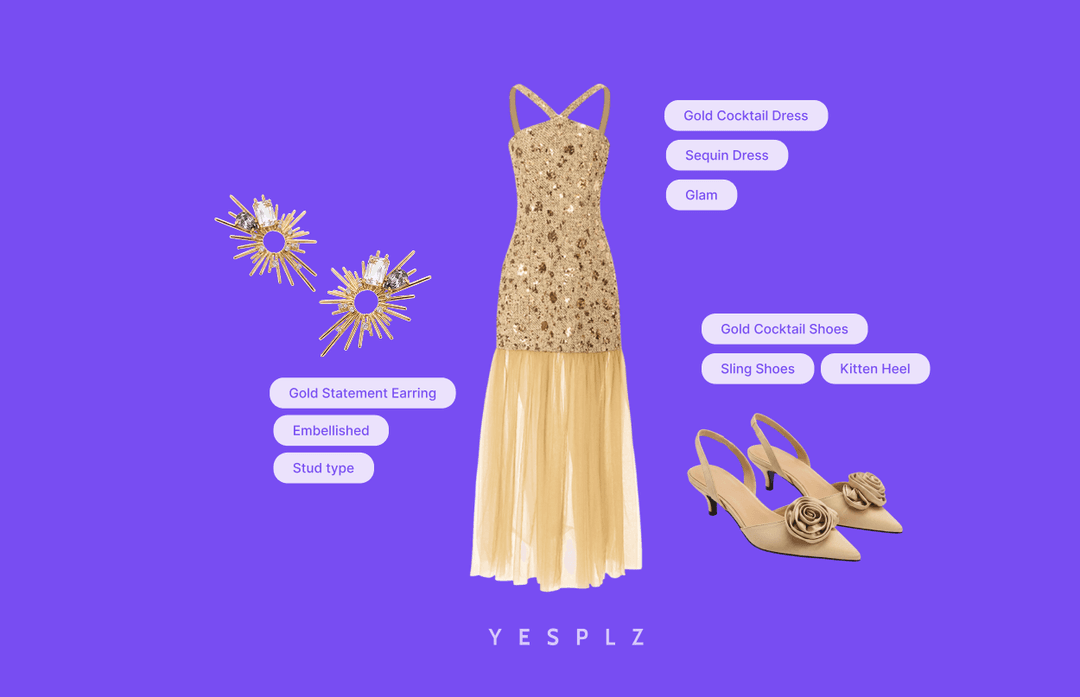
What are product tags used for? It’s a solution to low search CTR, limited filtering, manual collection curations, and more. Discover 6 essential use cases of product tags to transform search, filtering, SEO, and collections to boost sales.
by YesPlz.AI